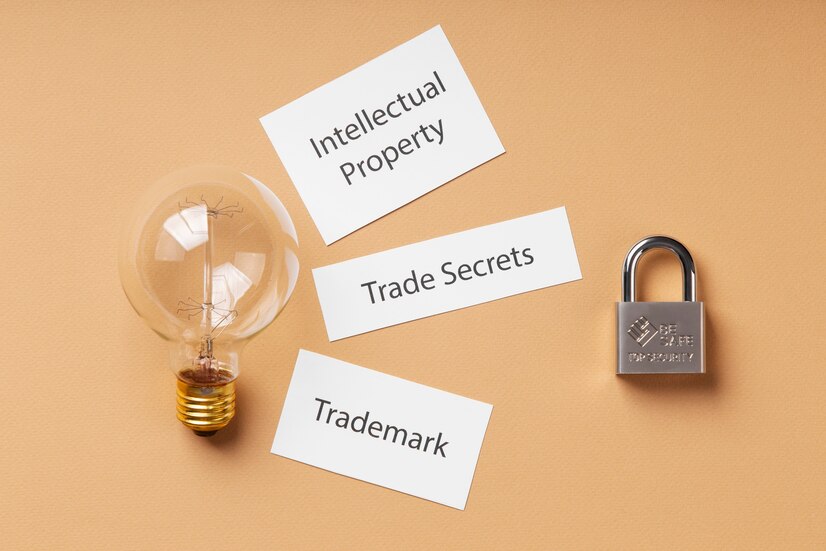
In the digital and information age, intellectual property rights have never been more crucial, especially for creators, entrepreneurs, and innovators. Protecting your creative work, be it music, art, writing, inventions, or business branding, ensures that you have control over how it is used and that you can benefit from it financially. In Nigeria, intellectual property laws provide a framework to secure these rights, empowering creators to defend their work legally. This article dives into the specific types of intellectual property rights available in Nigeria and outlines the steps you can take to secure your creative output.
Types of Intellectual Property Protections in Nigeria
- Copyright (Sections 2–8 of the Nigerian Copyright Act) Copyright protects literary, musical, and artistic works, including books, movies, songs, software, and more. Under the Nigerian Copyright Act, copyright is automatically granted upon the creation of a work, but registration with the Nigerian Copyright Commission (NCC) is recommended. Registration provides official proof of ownership in the event of disputes. Copyright protection in Nigeria lasts for the lifetime of the author plus an additional 70 years posthumously. Copyright infringement can result in legal consequences, including fines and injunctions.
- Trademarks (Part II, Trade Marks Act) Trademarks protect brand identities, such as logos, names, and slogans, which help consumers distinguish products and services. Registering a trademark gives the owner the exclusive right to use that symbol in commerce. In Nigeria, trademark registration is handled by the Ministry of Industry, Trade, and Investment, and trademarks last indefinitely, subject to renewal every seven years. A registered trademark can prevent others from using confusingly similar marks that could deceive consumers or damage the brand’s reputation.
- Patents (Patents and Designs Act, Cap 344) A patent is granted for novel inventions that offer new solutions to technical problems. Patent protection ensures that the inventor has exclusive rights to use, manufacture, or sell the invention for 20 years. In Nigeria, patents are governed by the Patents and Designs Act. To qualify for a patent, the invention must be new, inventive, and capable of industrial application. This legal protection prevents competitors from copying or selling the invention without permission.
- Industrial Designs (Part III, Patents and Designs Act) Industrial designs refer to the ornamental or aesthetic aspects of a product. This could include its shape, color, pattern, or texture. In Nigeria, you can register an industrial design for a period of five years, which is renewable for two further periods of five years each. Design registration helps companies and creators maintain the uniqueness of their products, particularly in competitive industries like fashion and electronics.
How to Protect Your Intellectual Property in Nigeria
- Register Your Work While copyright protection exists automatically, it is advisable to register your works (copyrights, trademarks, patents, and industrial designs) with the appropriate government bodies for added legal security. For example, musicians can register their songs with the Nigerian Copyright Commission (NCC), while businesses can register their logos with the Trademarks Registry.
- Monitor Infringements With the rise of digital platforms, it is easier than ever for others to copy and exploit intellectual property. Creators should use tools like Google Alerts or hire legal experts to monitor potential infringements of their works. Detecting misuse early enables swift legal action to protect your rights.
- Legal Remedies If your intellectual property is infringed upon, you can seek legal redress through the courts. Legal remedies in Nigeria include injunctions, which order the infringer to stop using the property, as well as financial compensation. In severe cases, criminal charges can be brought against the infringer, leading to fines or imprisonment.
- Licensing and Commercialization Instead of restricting the use of your intellectual property completely, consider licensing it. Licensing allows other people or businesses to use your work under agreed terms while you retain ownership. For instance, a musician can license their song to advertisers or filmmakers for use in commercials or movies, providing an additional revenue stream.
The Importance of Intellectual Property Rights
Intellectual property rights are essential for fostering innovation and creativity. By securing their creations, creators are encouraged to produce more work, knowing that they will have control over its use and potential profit. Moreover, intellectual property rights ensure that creators can prevent others from profiting unfairly from their efforts. Without these protections, the creative industries would struggle, and innovation could slow as creators lose control over their work.
